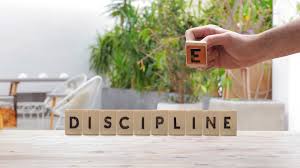 Image Source: Handful Of Thoughts
Image Source: Handful Of Thoughts
Key Insights at a Glance
The length of your weekend—at least, how long it feels—is more mental than physical, rooted primarily in novelty and attention
Groundbreaking research from leading neuroscience teams, including the University of Nevada, Las Vegas, now shows that distinctive memories, rather than routines, expand your perception of time
Practical tips drawn from these findings can help anyone structure weekends (or any downtime) to feel richer, longer, and more fulfilling
Why Do Weekends Feel Fleeting? The Neuroscience of Time Perception
For years, people have searched for ways to make weekends last longer. Researchers now say our experience of time is an illusion pieced together by the brain, not measured by clocks or calendars. Studies published in Current Biology highlight that humans don’t keep time with an internal stopwatch. Instead, our sense of duration is constructed from the number and variety of distinct events we experience. The more new events, the more ‘markers’ the brain creates, providing the sense that time is both slower in the moment and longer retrospectively.
When tasks blur together—think doing laundry, scrolling endlessly, or repeating the same routine—our brains default to autopilot. These periods get stitched together as a single memory chunk, which compresses the weekend into what feels like an eye blink.
How Novelty Reshapes Experience
Neuroscientists emphasize novelty as the key force. Each time we engage in something new, whether it’s as small as visiting a different coffee shop or as ambitious as taking a day trip somewhere unfamiliar, the brain encodes this as a new memory. This creates a denser ‘timeline,’ making the weekend feel much longer in hindsight.
For example, switching up your morning routine—maybe taking a yoga class you’ve never tried, or starting your day with art instead of emails—generates unique temporal markers. The activity’s unfamiliarity forces your attention back to the present, strengthening the memory. Over a single weekend, even subtle variations accumulate, which neuroscientists say is enough to leave you feeling like you’ve lived an entire week in just two days.
Attention, Memory, and the Brain’s Timekeeper
A specific brain region—the anterior cingulate cortex (ACC)—acts as the timekeeper, sequencing and stitching together our experiences. The more engaged we are, the more active the ACC, resulting in vivid, lasting memories. Passive activities (like binge-watching TV or scrolling through social media) do almost the opposite: they encourage a mental drift, flattening your perception of time and compressing hours into a vague blur.
Surprisingly, simply paying closer attention to the moment—truly tasting your meal, feeling the sun on your walk, or noticing the colors around you—amplifies the subjective passage of time. Attention and memory formation are closely linked, with the richest, most detailed memories coming from moments of full presence.
Your Weekend Game Plan: Applying Neuroscientific Strategies
Break the Habit Loop
Structure your weekend around micro-novelty. This could mean exploring a new neighborhood, trying an unfamiliar recipe, swapping one habitual activity for another, or switching venues for your regular plans.
Layer Experiences
Plan several distinct activities instead of one long, monotonous block. Instead of an entire afternoon of streaming, separate tasks with new experiences—visit a boutique market after a hike or catch a pop-up art show before dinner with friends.
Mind the Micro-Moments
Detailed attention, even to small moments, generates memorable cues. If you’re making coffee, notice the aroma and sound. If walking, savor the sensations—these micro-memories make hours feel weightier.
Embrace Learning and Movement
Trying something that challenges you mentally or physically—a one-hour dance class, a language lesson, or adventurous cooking—forces your brain to construct new mental paths, slowing time’s perceived speed.
Reflect and Recount
At the end of your weekend, take a few minutes to reflect on what you did and recount your experiences—journaling or sharing stories. This closing activity helps solidify memories, enhancing the feeling of a ‘full’ weekend.
Broader Implications: Hack Your Timeline All Week Long
The same principles apply to weekdays, vacations, and even challenging life chapters. Filling days with new experiences, even tiny ones, expands your memory bank, giving you a sense of living more life in less time. Understanding your brain’s way of marking time can help break routines, stave off boredom, and enrich each day—work or play.
In conclusion: The secret to a long-feeling weekend? Fill it with rich, new, attentive experiences and savor every micro-moment. Neuroscience says time is not about the ticking of minutes but the tapestry you weave from novel, engaged memories.
Sources: University of Nevada, Las Vegas (Current Biology)
Advertisement
Advertisement



